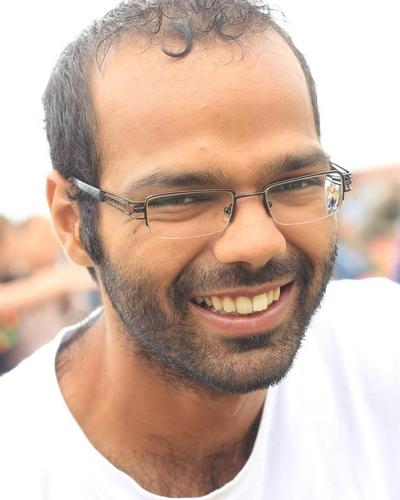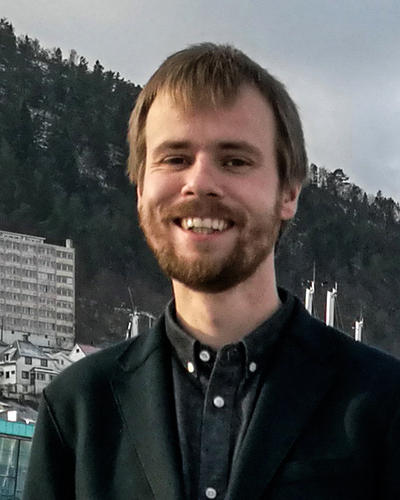SDGs change the role of universities
If universities are to contribute to societal attainment of the Sustainable Development Goals, it requires them to take on a different role, posit SpaceLab/CET researchers.

Main content
– Universities must recognize that many of the people involved in creating the problems we are facing today, are people with higher education. Now the university sector needs to critically reflect on what kind of education and research we actually need in order to take on the complexity of current sustainability problems, Jakob Grandin says.
To meet SDGs, universities need to transform
Along with SpaceLab/CET colleagues Siddharth Sareen and Tarje Wanvik, Grandin is playing a key role in the upcoming UoB conference on Sustainable Development Goals (SDGs). The conference questions the role Norwegian universities have in relation to the SDGs, and aims to engage Norway’s research and higher education communities, politicians, government officials, NGOs, and the business sector in a collective effort to take responsibility for implementing the SDGs.
Grandin is arranging one of the workshops at the conference, which addresses how higher education can be transformed to meet the challenge of sustainable development. He is also moderating a talk on how to create SDG-reformed universities. The Spacelab PhD believes that responding to the SDGs creates a transformative challenge for universities and the education sector.
– The SDGs require faster and more integrated work to address topics of sustainable development. This poses a great challenge for universities. We need to ask ourselves what kinds of knowledge and skills we convey, and whether these are appropriate for reaching the SDGs, Grandin argues.
He believes the solutions lie in reforming the format of knowledge production.
– For example through initiatives such as the UiB Collaboratory - a student-led group here at CET – that challenge notions of who is in charge when it comes to education. The Collaboratory is promoting more student-led education, for example by creating a conference entirely for students, he says.
Read more about the Collaboratory here.
Grandin hopes the SDG workshop and panel debate will generate many good discussions and reflections around the role of universities in society, and how these manifest themselves to the public.
– The plenary will take on the transformative challenge that SDGs pose to universities in general. At the workshop, I hope we can build on this to highlight how universities can work at a more practical level by integrating sustainability perspectives in higher education curricula, he says.
Wanvik agrees that the topics of the conference challenges the role universities hold in society.
– Previously, the university has been seen as a provider of skills needed in society. Today’s universities should rather be seen as a driver of societal change, he says.
The SDGs are showing the direction
Wanvik and Sareen will lead the third of ten workshops at the conference, titled "Transformative deliberation: How to balance participatory urban planning ideals with pragmatic implementation of sustainable energy solutions". The workshop will explore various forms of decision-making and their potential to spur sustainable transformation.
– Our initial curiosity was to explore what makes large-scale transformations work, Wanvik explains, and adds:
– Living labs and small-scale bottom-up initiatives are often referred to when discussing transformation. These participatory approaches to transformation are sweet, but we want to discuss whether they are enough to bring about wider change. Maybe we need to acknowledge larger transformations with less participation, and recognise their valuable contributions to climate mitigation. Like we see when entire nations are divesting from fossil fuels, or when countries like China bans new coal development in their latest five-year plan.
Attending the workshop are senior researcher at Humboldt University, Timothy Moss, and PhD candidate from the University of Manchester, Gabriele Schliwa.
– We want to explore what forms of decision-making enable truly sustainable transformation, Sareen says.
Wanvik and Sareen explain that the SDGs are occasionally regarded as being vague and without clear measures. However, rather than constituting end goals, they can be seen as pointing us in the direction we should move towards.
– The SDGs are like a lighthouse: They signal the direction, and if universities orientate themselves accordingly, it will help towards promoting more sustainable futures, Sareen says.
For addressing the SDGs, CET is the right place
The CET/SpaceLab researchers agree that the considerable contributions from CET researchers at the conference highlight a deeper commitment to the SDGs.
– The CET presence is noticeable, that is really cool!
Grandin sees CET research areas as appropriate for addressing SDG matters, and underscores the need for social science to deal with these issues.
– CET research speaks closely to the SDGs, and can play an important role in mobilizing social science research on these topics. We are concerned with how cities can become sustainable, but also more attractive and just places to live, and also have a range of research projects on climate change adaptation, energy governance, and public participation. We are a young centre, but we are already growing a research portfolio that resonates with the SDGs, Grandin claims.
Sareen believes this presence is valuable.
– CET both represents the role of the universities in relation to the SDGs and how we can perform better, but also serves as a platform to showcase the substantive elements of such a transformation, he says.
Sareen adds that CET frequently allocates resources to bring in external researchers, something that is beneficial to the SDG debate. In relation to the SDG conference, CET is arranging a workshop and a seminar with one of the participants, Timothy Moss.
– Since we are in a position where we can build engagement with people and other research groups within a wide ambit, we are well-positioned to add to the debate, Sareen says.
The workshop is a closed-doors event, but the preceding seminar is open to all.
The UiB Collaboratory at CET will also participate in a conference pre-meeting with representatives from various student unions and student organisations.

